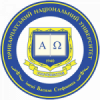Implementation of Transdisciplinary Approach in the Process of Formation of Future Primary School Teachers’ Communicative-Strategic Competence
DOI:
https://doi.org/10.15330/jpnu.8.1.182-192Keywords:
future primary school teacher, pedagogical discourse, communicative strategy, communicative tactics, communicative-strategic competence, transdisciplinarity, conceptual field of communicative concepts, transdisciplinary methodologyAbstract
The urgency of the problem of formation of communicative-strategic competence of future primary school teachers is substantiated in the article. The importance of implementing a communicative approach in the professional training of students in terms of reforming the education system in accordance with the Concept of the New Ukrainian School is emphasized. The authors of the article emphasized the specifics of pedagogical discourse as strategically planned and aimed at achieving a certain communicative goal. The results of the survey of graduate students majoring in “Primary Education” are revealed, which proved the necessity of developing a special methodology for the formation of future teachers’ communicative-strategic competence. The essence of the transdisciplinary approach as the basis of the specified technique is revealed. The characteristics, basics and the overarching purpose of the method are given. It is substantiated that in the conditions of the organization of pedagogical discourse the purpose becomes a process of educational work, ways and methods of knowledge acquiring and mastering of skills in the specific intersubjective communicative-dialogic space created by the teacher which students join as equal participants of communication among other participants with common considering of social situation, specifics of the future profession, professional language. The communicative concepts of navigation character are defined and conceptual fields of interconnected communicative concepts for providing transdisciplinary connections are characterized. The principles of realization of the offered technique are revealed: conformity of the modeled educational process to the final purpose of future teachers’ training for work in the conditions of the communicative environment of modern primary school; taking into account specifics of future professional activity; considering psychological features of future teachers' acquisition of communicative knowledge and skills; optimal combination of theoretical knowledge and practical skills; selection of the most effective forms, methods, technologies of formation of communicative-strategic competence.










